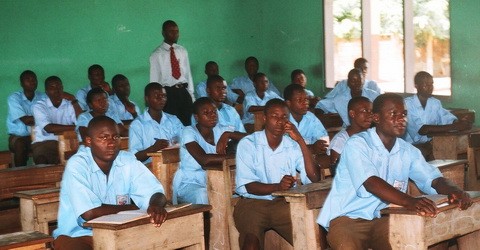Over 200 secondary students in Ashanti Region borrow uniforms for school
More than 200 students of Asare Bediako Senior High School in the Ashanti Region borrow uniforms from senior colleagues for school because authorities have failed to supply uniforms they have paid for.
For two years, second year female students of the school located at Akrokerri in the Adansi South District, have been stuck with wearing a worn-out check-frock, while the boys wear different unapproved attires for classes.
Students explain although they have paid the required fee for the approved uniforms school authorities have failed to provide them with the official school uniforms..
A student told Luv FM’s Prince Appiah students who completed the school more than two years ago also attended classes without uniforms.
According to the student, the cost of the official uniform is part of a fee of GH¢157.00 students are made to pay for various items in the first year.
But after paying this fee, they do not recieve the uniforms.
A furious parent told Prince the situation is unfortunate and has called on the Ghana Education Service to take action.
Asare Bediako Senior High School hardly organises Paretnt-Teacher Assocation (PTA) meetings, making it difficult to raise the issue for approapriate action to be taken.
Headmaster of the School, Wilberforce Kwaku Nuako, declined comment to the issue.
But when he was pushed, he explained some students owe school fees while others have failed to pay the right fee for the uniforms, making it difficult to get suppliers to deliver them.
He added that delays with government subvention to the school is another reason the school is unable to provide students with the uniforms.
Meanwhile parents are unhappy their children are borrowing old uniforms for classes.
Source: Ghana | Myjoyonline.com


